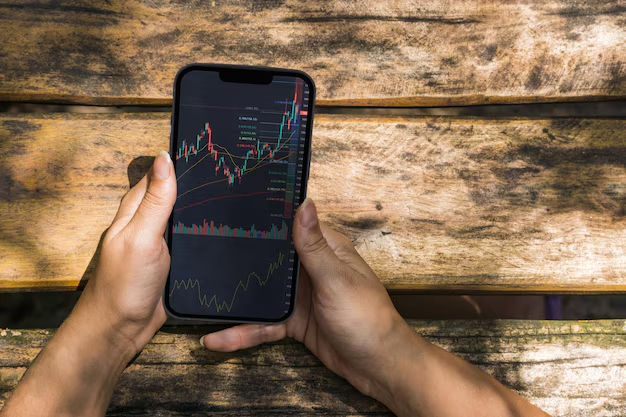Can You Day Trade on Robinhood? Here's What You Need to Know
Day trading can be an exciting yet challenging endeavor, where traders buy and sell securities within the same trading day. As more individuals seek to engage in this activity, platforms like Robinhood have come under scrutiny: Can you day trade on Robinhood? Let's delve into this topic and explore the nuances of using Robinhood for day trading, as well as practical tips and essential considerations to keep in mind.
Understanding Day Trading on Robinhood
Day trading involves purchasing and selling financial instruments like stocks or options within the same day. The goal is to capitalize on small price movements, often by executing a high volume of trades. Robinhood, known for its commission-free trading model, attracts many retail investors seeking straightforward platforms.
Is Day Trading Permitted?
Yes, Robinhood allows day trading. However, like all brokerage firms, it is subject to specific regulations. One vital rule is the Pattern Day Trader (PDT) rule, established by the Financial Industry Regulatory Authority (FINRA). This rule applies to any stock broker providing margin accounts to customers.
The Pattern Day Trader Rule Explained
A Pattern Day Trader is defined as a trader who executes four or more day trades within five business days, provided that the number of day trades represents more than six percent of their total trading activity for that same five-day period. If you are classified as a Pattern Day Trader, you must maintain a minimum account equity of $25,000. If your account drops below this threshold, you will face restrictions.
Implications for Robinhood Users
- Margin Accounts: To day trade on Robinhood and fall under the PDT classification, users must operate within a margin account, maintaining at least $25,000 in equity.
- Cash Accounts: Users with cash accounts aren’t subject to the PDT rule. However, cash accounts require full settlement of funds – this means users can only trade with settled cash, slowing the volume of trades compared to margin accounts.
Key Considerations for Day Traders on Robinhood
Now that we grasp the basic allowance, here are several essential factors to remember:
Account Types
- Margin Account: Suitable for frequent day traders aiming to leverage additional funds. Be mindful of the $25,000 equity requirement if holding a Pattern Day Trader status.
- Cash Account: Suitable for less frequent traders who prefer waiting for funds and trades to settle.
Margin and Leverage
Leverage amplifies the potential for both gains and losses. Understand Robinhood’s margin rates, borrow only what aligns with your risk tolerance, and stay informed of margin maintenance requirements to prevent forced liquidations.
Fractional Shares
Robinhood offers fractional shares, allowing traders to purchase a fraction of a share with limited funds. This can be an attractive option for day traders focused on high-priced stocks.
Practical Tips for Day Trading on Robinhood
- Start Small: Focus on a few stocks to develop a nuanced understanding.
- Research Thoroughly: Stay informed by tracking market indices, news, and trends.
- Keep Emotions in Check: Avoid impulsive decisions driven by fear or greed.
- Use Tools: Employ stop-loss orders, alerts, and other tools to manage your trades effectively.
- Stay Informed: Subscribing to financial news and reports keeps you informed of potential market shifts that might impact your strategies.
Key Takeaways for Robinhood Traders 📝
- ✅ Robinhood permits day trading, but the PDT rule applies to margin accounts.
- ✅ Keep emotions in check with disciplined, rule-based strategies.
- ✅ Utilizing tools like stop-loss orders can mitigate potential losses.
- ✅ Be aware of leverage implications and associated risks.
Navigating Risks and Challenges
While day trading can be rewarding, it involves substantial risks. Understand how to mitigate these challenges:
Market Volatility
Day trading thrives on volatility; however, volatile markets also increase unpredictability. Develop strategies for both bullish and bearish conditions.
Learning Curve
Success doesn’t come overnight. Dedicate time to education; consider virtual trading accounts or paper trading to build experience without financial risk.
Tax Considerations
Frequent trading may incur significant taxes. Consider consulting with a tax professional to understand obligations and apply tax-efficient strategies.
Enhancing Your Experience on Robinhood
Take advantage of Robinhood's intuitive interface and additional resources available to enhance your trading journey:
Utilizing Robinhood Resources
- Educational Material: Robinhood offers educational content to help users understand financial markets better.
- Alerts and Notifications: Customize notifications for stock price changes, ensuring timely awareness of market shifts.
🌟 Pro Tip: Start by mastering a specific strategy, such as scalping or momentum trading, and gradually expand as your confidence and knowledge grow.
Community and Support
Robinhood's community forum, Robinhood Snacks, and multiple online resources provide support and insights from experienced traders and like-minded individuals.
Empowering Your Day Trading Ambitions
Day trading on Robinhood offers both opportunities and challenges. Understanding the rules surrounding day trading, such as the Pattern Day Trader rule, helps align your trading activities with regulatory expectations. Moreover, consistent research, strategy development, and a disciplined approach to risk management are vital in cultivating success.
Ultimately, whether you're a seasoned trader or a novice, Robinhood provides a platform equipped with resources and tools designed to aid your growth and achievement in the dynamic world of day trading. Recognize the risks, stay informed, and let your trading journey begin with confidence and a calculated approach.
In navigating the world of day trading on Robinhood, you now possess a roadmap filled with essential insights and considerations that can aid you in making informed decisions. Happy trading! 📈

Related Topics
- Are There Any Good Indexes On Robinhood
- Can I Buy Bnd In Robinhood
- Can I Buy Bonds On Robinhood
- Can I Buy Gold On Robinhood
- Can I Buy Trulieve Stock On Robinhood
- Can I Buy Trump Coin On Robinhood
- Can I Contact Robinhood By Phone
- Can I Day Trade Crypto On Robinhood
- Can I Day Trade On Robinhood
- Can I Day Trade With Robinhood
